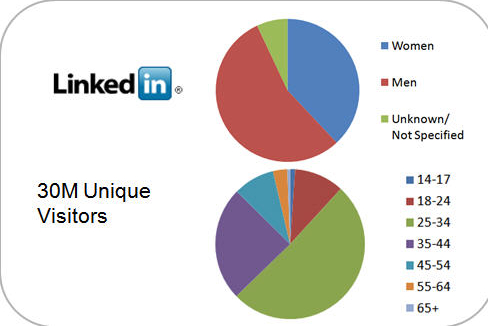
Founded in 2010, Shanghai-based Ushi is another strong competitor which focuses on more senior business. According Founded in 2010, Shanghai-based Ushi is another strong competitor which focuses on more senior business. According to the research from Technode, 12,000 CEOs, 5000 CTOs and 74% of VCs active in China are in Ushi’s network. It currently has almost a million members, with forecasts of 10 million users by end of 2013.Same as Tianji, localization makes Ushi stand out in the crowd. Apart from using Chinese as the main language, this invitation-only website launched a mobile phone version in March 2010, making it the first Chinese professional network to have a mobile application on both Android and Apple platform. Industry insiders believe growth will accelerate in the next two to three years. Dominic Penaloza, the co-founder and CEO of Ushi said that currently nobody is dominating the market in the same way that LinkedIn does in the Western market. This provides an attractive opportunity to the young Chinese professional SNSs although the fierce competition is inevitable. Tianji founder, Derek Ling also thinks there will be a huge opportunity in Chinese market as it is several years behind the U.S. market. The growth of professional social networks in China is similar to how it was developing in Western markets four or five years ago. In order to grasp this opportunity, Tianji’s parent company Viadeo has raised funds worth $32 million this year, about one-third of which will be invested in the Chinese market. Although there are barriers like cultural differences for LinkedIn-type networking sites in China, with the rising young generation of Chinese internet users and a growing comfort level to share information online, the question isn’t if a popular professional network of China can take shape. Question is, how?to the research from Technode, 12,000 CEOs, 5000 CTOs and 74% of VCs active in China are in Ushi’s network. It currently has almost a million members, with forecasts of 10 million users by end of 2013.Same as Tianji, localization makes Ushi stand out in the crowd. Apart from using Chinese as the main language, this invitation-only website launched a mobile phone version in March 2010, making it the first Chinese professional network to have a mobile application on both Android and Apple platform. Industry insiders believe growth will accelerate in the next two to three years. Dominic Penaloza, the co-founder and CEO of Ushi said that currently nobody is dominating the market in the same way that LinkedIn does in the Western market. This provides an attractive opportunity to the young Chinese professional SNSs although the fierce competition is inevitable. Tianji founder, Derek Ling also thinks there will be a huge opportunity in Chinese market as it is several years behind the U.S. market. The growth of professional social networks in China is similar to how it was developing in Western markets four or five years ago. In order to grasp this opportunity, Tianji’s parent company Viadeo has raised funds worth $32 million this year, about one-third of which will be invested in the Chinese market. Although there are barriers like cultural differences for LinkedIn-type networking sites in China, with the rising young generation of Chinese internet users and a growing comfort level to share information online, the question isn’t if a popular professional network of China can take shape. Question is, how?
Sources:




